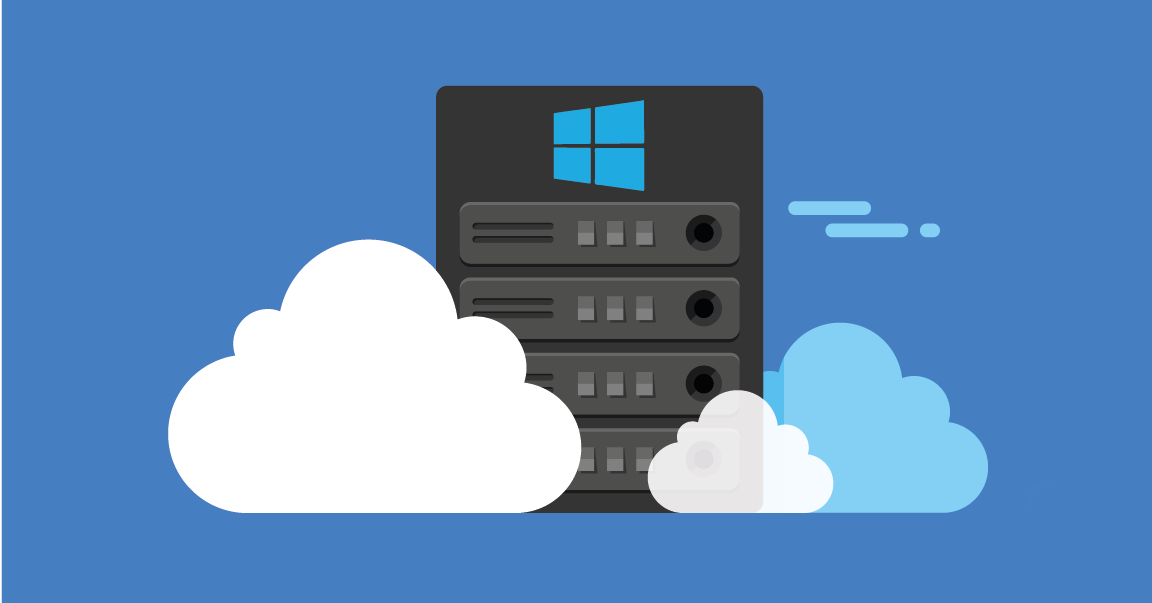What is Windows Hosting?
Today, many people consider having a dynamic website with visually appealing aspects necessary. One of the most well-liked and feature-rich services provided by hosting businesses that notably match these criteria is Windows web hosting services. Generally speaking, Windows and Linux are the two main choices for web hosting. With its cutting-edge technology, Windows hosting may help you maintain an advantage over the competition with appealing pages that function without a hitch.
What is Windows Hosting?
Windows hosting is a web hosting service that uses Microsoft’s Windows Server operating system. This allows your website to be compatible with applications built for Windows (ASP.NET and MSSQL), making it a great choice if you’re already comfortable with the Windows environment or your project relies on these Windows-based tools.
The popularity of Windows hosting goes hand-in-hand with the widespread use of Windows on desktops. With over 75% of desktops running Windows globally, you can be confident that Windows hosting offers your website a familiar and supported foundation. Plus, Microsoft’s ongoing improvements to Windows ensure you benefit from the latest technical advancements and script compatibility.

Benefits of Windows Hosting
Built for the Microsoft ecosystem
Many businesses rely on Microsoft tools like ASP.NET, FrontPage, and SharePoint for development, communication, and collaboration. Windows hosting provides the perfect environment for these applications. ASP.NET, for example, integrates seamlessly with other languages and offers a user-friendly development experience. Additionally, Windows server environments are familiar to many IT professionals, making server management and updates a breeze.
Ease of use and familiarity
Windows hosting is based on Windows Server OS, a familiar environment for many tech professionals. The intuitive Plesk control panel simplifies website management and updates. Plesk is compatible with popular Content Management Systems (CMS) like WordPress and Joomla.
Focus on compatibility
Microsoft products are known for their compatibility. Windows hosting extends this advantage by supporting open-source tools like MySQL and PHP, offering a range of options than Linux.
Cost-effective with high-value
While traditionally more expensive than Linux hosting due to licensing costs, Windows hosting has become increasingly affordable. Additionally, considering the rich feature set and compatibility with Microsoft products, it offers excellent value for your investment.
Intuitive interface
Windows hosting uses the familiar Windows operating system, eliminating a learning curve. Additionally, Plesk offers a user-friendly experience compared to cPanel, commonly found in Linux hosting.
Seamless integration with Microsoft tools
This type of hosting integrates seamlessly with familiar Microsoft tools like ASP.NET, Microsoft SQL Server, and even Microsoft Exchange for emails. This simplifies website management for users comfortable with the Windows ecosystem.
Effortless management with Plesk
The Plesk control panel provides straightforward controls for managing your website, emails, and multiple domains within a single platform.
Disadvantages of Windows Hosting
- It Is Not Secure as Linux Hosting: When you cross-comparison the security of Windows hosting and Linux hosting, you will notice some significant differences. In other words, Linux hosting is more secure. Windows hosting solutions are highly vulnerable to numerous attacks, including ransomware attacks. However, Linux hosting is more confident, and you will keep peace of mind. Since security is a significant concern, you must be mindful of this fact as you pick a hosting solution.
- It Is Expensive: You will have to spend more money to get this type of hosting when compared to Linux hosting. However, this varies depending on the hosting solutions provider. You will be able to save money in the long run by going ahead with Linux hosting.
- It Is Less Stable: Linux hostings are well-known for their dependability. They seldom need to be restarted and can perform many tasks at once. On the other hand, Windows hostings have difficulty running many programs and processes simultaneously without crashing. Like any other web technology, it has improved over time and is anticipated to continue to do so. However, they aren’t relatively as constant in their performance as Linux hostings. However, this is another area where selecting the appropriate web hosting company may make a significant impact. When a Windows hosting business offers a 99.9% uptime guarantee, it means they’ve taken all the necessary steps to keep their Windows servers running as smoothly as possible. A competent web hosting company can assist overcome the gap in server stability between Windows and Linux hosting by paying attention to maintenance and planning.

Who should use it?
For most new businesses starting out on the web, getting a shared hosting or cloud hosting plan based on a Linux server makes the most sense because of its affordability and reliability. Where Windows hosting really makes the most sense is for businesses—mostly enterprises or other large businesses that have been around for a while—that have built their website and other systems on Windows programs.
If a lot of your business’s tech relies on Windows, then Windows server hosting is the natural choice. It will work seamlessly with all the other programs you use, and won’t require you to rebuild or work on anything from scratch. The tech professionals your company relies on to keep all your systems working properly will already know how to work with Windows hosting.
In short, if it is the right choice for your company, your IT team will likely have strong feelings on the subject. Make sure you bring them into the conversation and let their input determine your web hosting choice.
Conclusion
Windows hosting is a viable option for a broad range of needs. This platform can provide virtually all the same functionality as Linux and a little more when considering integration with other Microsoft products. Although you might have to pay a little more, the power and efficiency of the Windows platform outweigh the cost disadvantage by far.